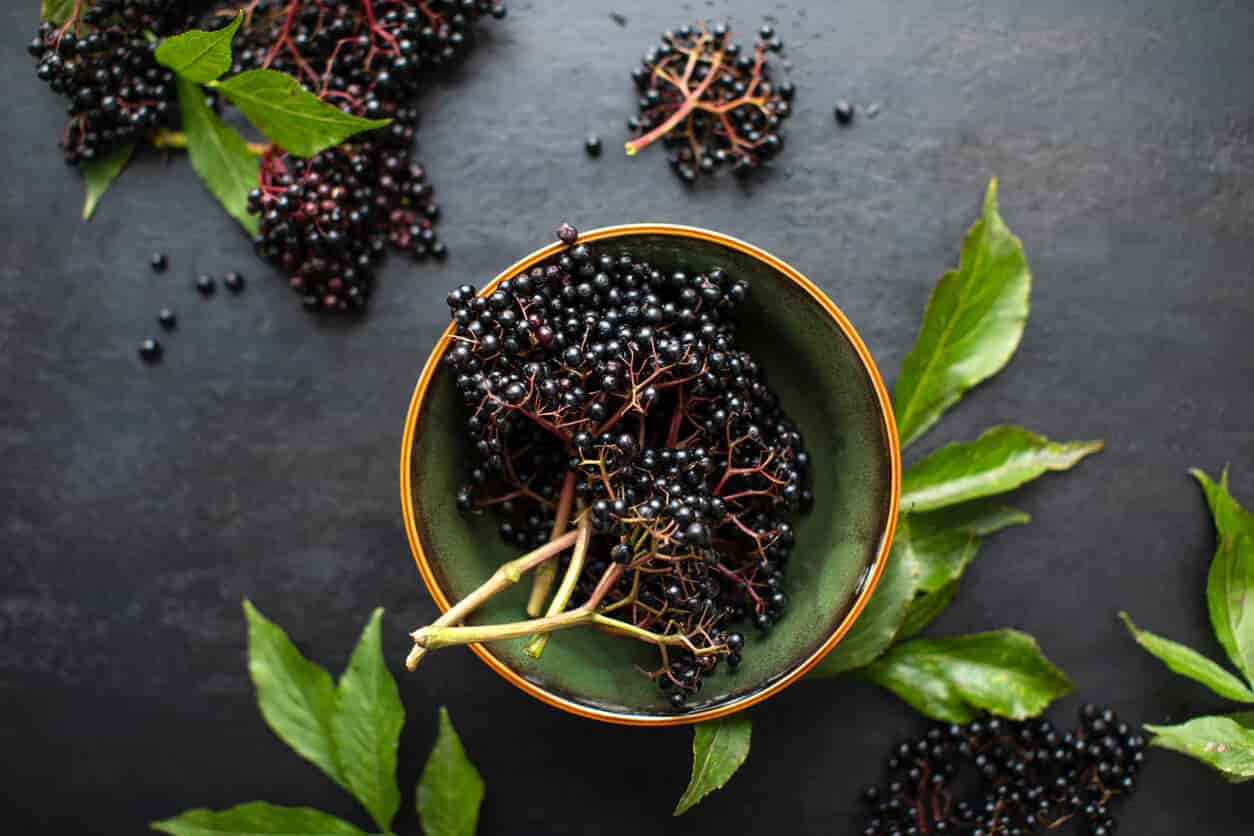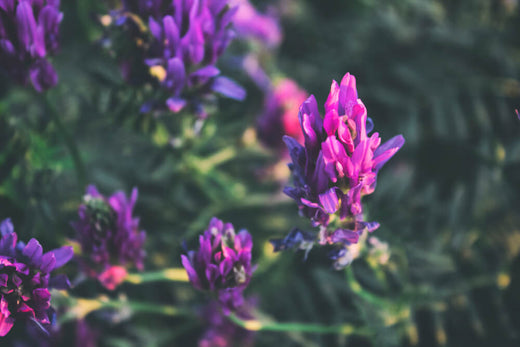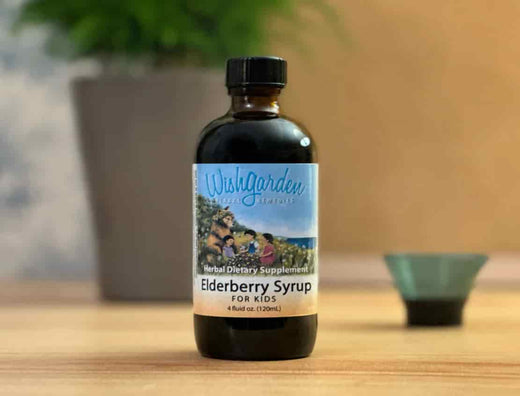
Elder Flower Benefits: A Sweet Bloom with Surprising Power
Written by Rebecca Younger, CH, CDShare
If you’ve ever strolled past a woodland edge in late spring, you may have noticed the elder tree (Sambucus nigra) dotted with clusters of creamy blossoms. These flowers might seem delicate, but elder flower benefits have earned them a lasting reputation in traditional wellness. Packed with vitamin C, free radical scavenging plant compounds, and properties that help maintain a healthy immune system and skin health, elderflower has much more to offer than its pretty appearance.
For centuries, people have enjoyed elderflower tea, cordial, and dried elderflower in folk traditions for their amazing health benefits. Today, these blossoms are still celebrated for supporting seasonal wellness, promoting healthy skin healing, and adding a floral touch to everything from kitchen recipes to herbal supplements.
Botanical Profile: Understanding Elder Flower
The elder tree, also called black elder or European elder, is one of the most recognizable medicinal plants. Growing up to 15 feet tall, this deciduous shrub bursts into large, flat-topped clusters of cream-colored flowers between May and July. These blossoms are where the elderflower health benefits are concentrated, and they’ve long been valued for their role in seasonal wellness and skin health.
Of course, elder isn’t just famous for its flowers. The dark purple elderberries that appear later in the season are also widely used in herbal traditions and dietary supplements. While the berries often get the spotlight for immune system support, the flowers bring their own unique health benefits that deserve just as much attention.
Key identifying features of Sambucus nigra:
- Deeply ridged gray-brown bark that becomes furrowed with age
- Compound leaves with 5–7 serrated leaflets in opposite pairs
- Cream-colored flowers in broad, flat clusters up to 8 inches wide
- Multi-stemmed growth habit forming a rounded crown
- Sweet fragrance released from freshly harvested flowers
It’s important not to confuse true elderflower with dwarf elder. The leaves and bark of dwarf elder can cause stomach upset and don’t offer the same beneficial properties. Stick with authentic Sambucus nigra for safe, effective use.
Traditional Wisdom and Historical Applications
For thousands of years, cultures across Europe and North America have tapped into the health benefits of elderflower. Folk herbalists prepared elderflower tea as a hot infusion to ease symptoms of a bug, support healthy body temperature, and even encourage sweat gland activity for gentle detoxification.
In medieval times, monasteries documented the use of elderflower infusion for skin irritations, while Native American tribes used cooled elderflower infusion to treat sinus discomfort and soothe irritated skin. Elderflower cordial recipes evolved as a way to preserve the blossoms, blending nutritional benefits with shelf stability.
Health Benefits and Traditional Uses
Immune System Support
Elderflower has a long history of use in traditional herbalism for seasonal wellness. The blossoms contain flavonoids such as quercetin and rutin, along with vitamin C, that contribute to their free radical scavenging activity. These compounds help the body maintain a healthy inflammatory response and support overall immune system function.
Skin Health and Radiance
Beyond seasonal wellness, elderflower has also been valued for supporting skin health. The plant’s natural compounds help soothe and tone the skin. Herbal infusions and topical applications made with elderflower may help maintain skin’s natural resilience, support healthy skin healing, and promote a radiant appearance.
Respiratory and Metabolic Wellness
In traditional European herbal practices, elderflower was often brewed into teas to encourage healthy respiratory function and soothe seasonal discomforts. Some early research also points to potential roles for elderflower in supporting healthy blood sugar metabolism, though more studies are needed.
Usage Guide and Preparation Methods
Tea and Beverages
Elderflower tea is a simple way to enjoy elderflower health benefits. Elderflower cordial recipes preserve vitamin C and flavonoids, offering both flavor and healthful benefits.
Topical and External Uses
Cooled elderflower infusion can be applied as a gentle topical. Elderflower is also added to bath water for a soothing soak or infused into oils for creams and salves.
Liquid Extracts
Liquid extracts (also known as tinctures) are one of the most efficient ways to use elderflower. They are concentrated, fast-absorbing, and versatile.
How WishGarden Herbs Uses Elderflower

- Kick-Ass Immune – a go-to blend for seasonal immune system support
- Kick-Ass Sinus – crafted to support clear and comfortable breathing
- Serious V-Fighter– designed for extra immune system support
- Congestion Rescue for Kids – gentle support for little ones
- Kick-It Immune for Kids – kid-friendly immune support
- Congestion Rescue for Pregnancy– safe support for expectant mothers
- Happy Ducts – supports healthy milk flow for breastfeeding parents
- Pregnancy Belly Oil – nourishing topical blend with elderflower
Safety Guidelines and Precautions
- Only the cream-colored flowers and ripe berries are safe
- Do not eat raw elderflower in large quantities
- Consult a healthcare provider if managing conditions or medications
- Avoid combining elderflower with excess alcohol
Frequently Asked Questions
What are the main elderflower benefits?
Elderflower supports immune function, skin health, and seasonal wellness.
Can elderflower help skin health?
Yes. It has long been used to soothe the skin and support healing.
Can elderflower support healthy blood sugar levels?
Early research suggests potential roles, but more studies are needed.
Is elderflower the same as elderberry?
No. Elderflower refers to blossoms, and elderberries are the fruits.
What are the possible side effects of elderflower?
It is safe when prepared properly, but avoid raw leaves, bark, and unripe parts.
Can elderflower help with oral or skin discomforts?
Yes. Folk practices include teas and cooled infusions for gentle comfort.
Does elderflower encourage sweating?
Yes. Traditionally used in teas to gently encourage sweating.
Rebecca Younger is passionate about herbs and women's health. She aspires to plant seeds of inspiration within her community about plant medicine and healthier ways of life. She studied Herbal Medicine at Herbalism Roots in Denver and is a certified Doula through the Matrona Foundation. She is the Brand Communications Specialist at WishGarden Herbs.
For educational purposes only. This information has not been evaluated by the Food and Drug Administration. This information is not intended to diagnose, treat, cure, or prevent any disease, or to sell any product.




















